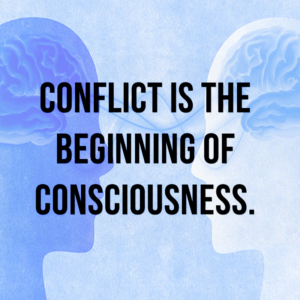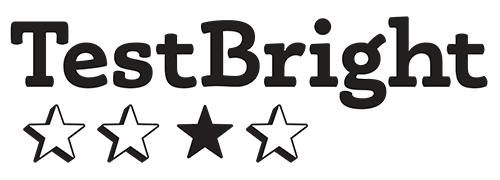 Education may appear on its face to be a purely constructive endeavor, wherein we shine a light in the darkness and fill empty voids with pure, unadulterated knowledge. Nothing, of course, could be further from the truth.
Education may appear on its face to be a purely constructive endeavor, wherein we shine a light in the darkness and fill empty voids with pure, unadulterated knowledge. Nothing, of course, could be further from the truth.
Tutors rarely encounter blank canvases; instead, we find in our students incomplete works, some of which may be further embellished and others demanding to be painted over entirely. Education, when done right, involves more than a little bit of destruction.
Anyone who works with students must anticipate and even invite those moments of dissonance, when previously held beliefs clash with new information. Everyone carries preconceptions and misconceptions, some of which are rooted to other foundational concepts. The deeper those associations, the tougher those ideas may be to uproot. Teachers have to manage the heavy lifting with skill, patience, and grace.
Conflict is the beginning of consciousness. Psychoanalyst Mary Esther Harding’s insight identifies the opportunity inherent in that friction between the old and new. Sometimes, prior knowledge prevails. In other cases, it yields to something better.
Productive conflict doesn’t only characterize our interactions with students. If you’ve been a tutor for any length of time, you know how very solitary this endeavor has been. In the absence of observational feedback or communal resources, each of us had no choice but to chart a distinct path which may or may not have replicated what worked for others. Fortunately, new societies have sprung up to support solo practitioners. It’s been my great privilege to join others in organizing the Test Prep Tribe Facebook group and National Test Prep Association industry nonprofit to provide open forums for test prep professionals to learn, share, and grow. Tutors in other subject lines are well served by active, ethical FB groups like Tutoring Business Success Support Group and Ultimate Support Group for Online Tutors, though no true tutor industry nonprofit exists as of yet.
A broader opportunity than ever before to connect with more tutors than ever before yields immeasurable opportunities for commerce, collaboration, and–inevitably–conflict. How can it not, when so many who have been strangers both to each other and the very notion of best practices meet socially to compare philosophies and policies? Why shouldn’t unsettled ideas be debated and argued with facts, force, and reason? We, both individually and collectively, need these clashes, this endless defining debate on what is best in tutoring. Dissension can refine understanding as long as we don’t allow it to devolve into discord. Consider Max Lucado’s smart advice: “Conflict is inevitable, but combat is optional.” Society requires civility always.
We educators need to put our money (proverbial, of course) where are mouths are. Just as we exhort our students to reconcile the jarring collision between what they once thought and what they must know, so should we be prepared to kill our most darling preconceptions–or allow others to kill them for us–in the face of new and better understanding.
Conflict is the beginning of consciousness.
— Mike Bergin
Tutor Tastemaker
 Anson Han is an Engineering Delivery Manager based in Philadelphia, who moonlights as an all-around academic tutor, ACT/SAT test prep tutor, and Executive Function Coach.
Anson Han is an Engineering Delivery Manager based in Philadelphia, who moonlights as an all-around academic tutor, ACT/SAT test prep tutor, and Executive Function Coach.
What are three resources your practice depends on?
1. Utilizing various SAT Question of the Day practice questions (College Board retired their official version of this, but several test prep organizations and agencies offer it)
2. Microsoft Math Solver (which gives a step by step breakdown / solution for various math problems)
3. Reviewing active reading & notetaking strategies, and applying them to different academic areas
What is one more resource you strongly recommend?
At A+, we’re partnered with Mindprint Learning and some of our clients opt to participate in the Mindprint assessment, which I find really valuable in prepping materials and strategies for a new client.
What is one insight every tutor should hear?
Finding the right groove with your students and playing to their strengths to help overcome challenges is key to successful tutoring experiences. Some parents and students expect this to happen immediately, so it’s important to level set and explain this doesn’t happen overnight, but after a few regular meetups, at which point you should start to find a comfortable swimlane to work within and progress along.
Tutor Tips, Tools, and Thoughts
Students Need to Learn Good Habits, Even When They Don’t Seem Logical
Good habits can be valuable, even when they may not be strictly logical.
Retention Marketing: How To Win Back Your Existing Customers
Keeping clients and keeping them coming back is the cornerstone of all great tutoring businesses.
Book Summary: Accelerated Expertise
Fascinating and practical takeaways from what sounds like a fascinating book.
Three Directions for Disciplinary Literacy
How do we teach teens to understand deep content?
The algorithm is the new industry
Does this apply to tutoring as well?
Did you enjoy this issue of Tutor: The Newsletter? Get the next issue right in your inbox by subscribing below:
